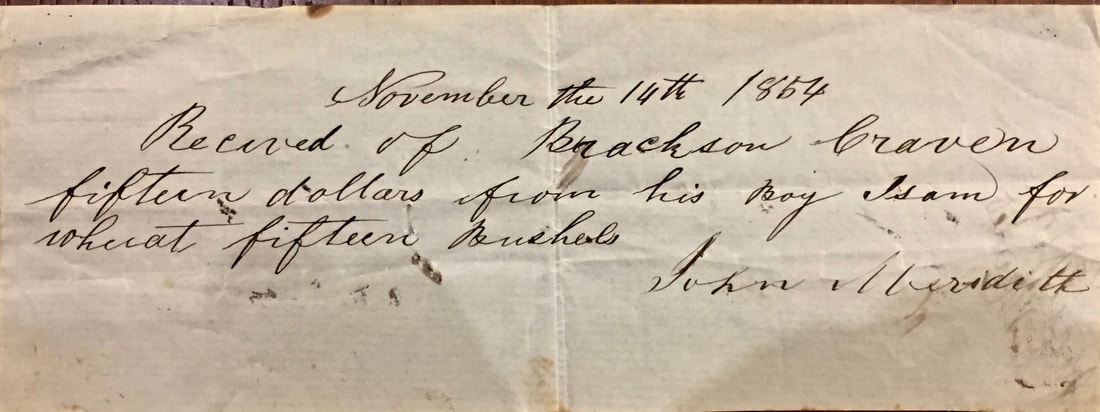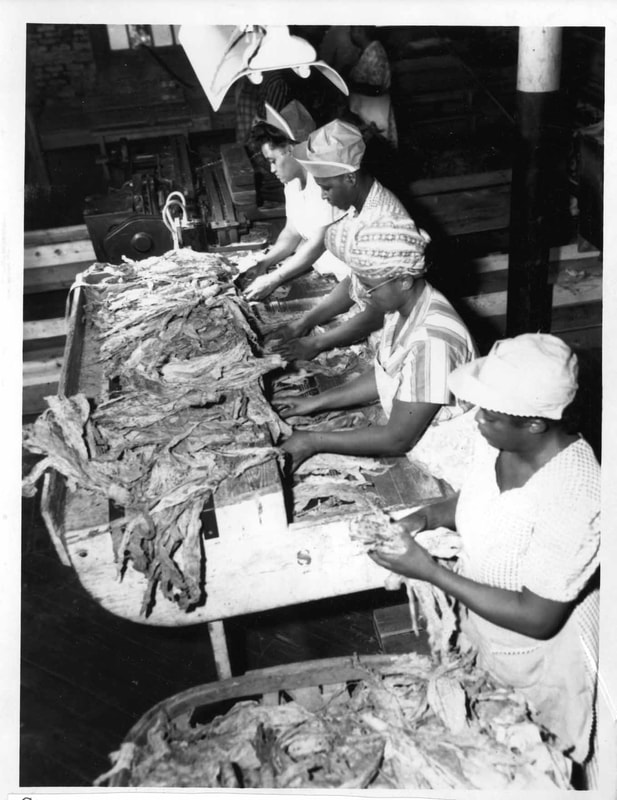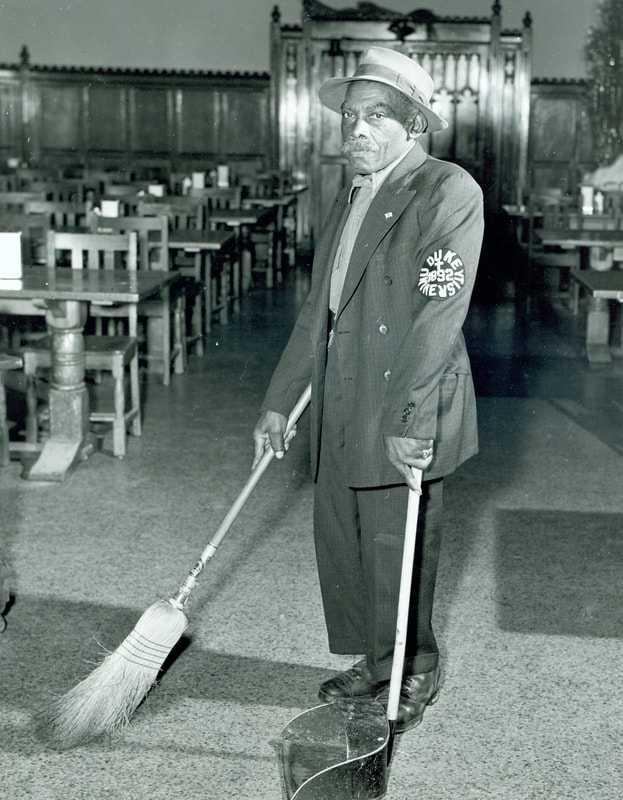Based on research conducted regarding Duke's existing memorials, the University is quick to honor donors and faculty, while staff go almost entirely unrecognized. Staff members at Duke are the people whose work contribute to the daily functioning of our campus. Even at its very inception, the institution failed to recognize the people whose labor generated capital upon which its existence is made possible.
caroline, isam, and malindacontent warning: child slavery, slave sale
Caroline, Isam, and Malinda were among the people that some of the University's founders purchased as slaves. Slave ownership, although generally widespread throughout the South, was an unusual occurrence in the Quaker Belt, where the University had its origins.
workers in Durham's tobacco industryDuke University contributors, including the Duke family itself, profited from the tobacco industry. Overlooked in many accounts of this narrative are those who worked in the fields, factory, and storage facilities.
|
the walls of duke universityUnder Braxton Craven's presidency, Trinity College hired George Wall, a former enslaved person, as a janitor and handyman for sixty years. Wall's son, George Frank Wall, who also worked as University staff, later bequeathed $100 (the equivalent of $1200) to the University. The University used this money as part of a scholarship fund at a time when it was still segregated.
the rigsbee cemeteryThe Rigsbees were sweet potato farmers who helped organize Durham's earliest schools and municipal government. Their family cemetery is located near the parking lots of Wallace Wade Stadium.
|
DO YOU KNOW A STORY WE DON'T?
Please share with us, so that we can continue to grow this database.



